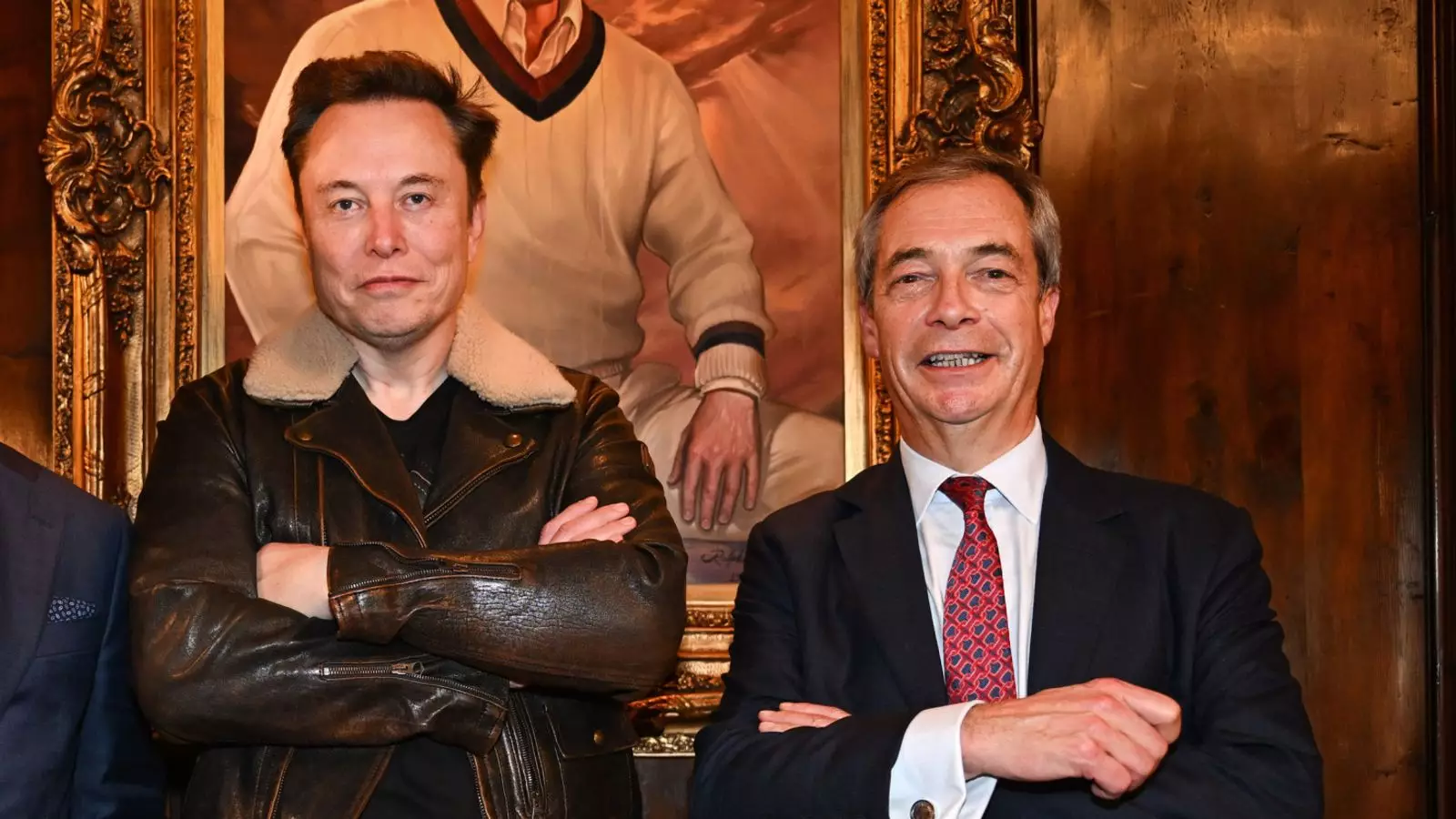The imminent changes to donation regulations in UK politics signal a pressing need to address the shadowy money that has seeped into the nation’s democratic framework. As political ministers draw up proposals to restrict foreign donors from providing unrestricted funds to political parties, a significant revelation comes to light: the overwhelming majority of British citizens oppose foreign financial influence in their electoral process. In a striking piece of research from Sky News, a staggering 77% of respondents asserted that individuals not registered to vote in the UK should be barred from making political donations. This sweeping sentiment highlights an alarming discord between public opinion and the current legal framework that permits foreign entities to contribute to British politics through domestic corporate fronts.
Money vs. Integrity: The Ethical Dilemma
At the heart of the foreign donation debate lies a profound ethical question. When foreign billionaires like Elon Musk hint at massive donations, virtually eclipsing every other contribution within a year, it raises eyebrows and concerns about the integrity of the political system. Musk’s rumored $100 million donation to Reform UK does not merely reflect financial might; it exposes the unsettling reality that a single individual could potentially sway the political narrative of an entire nation. Critics argue that this creates a two-tier democracy—where the opinions of wealthy foreign donors can drown out the voices of ordinary citizens. The proposed changes that restrict foreign entities based on their profit-making capabilities attempt to draw a line in the sand, but whether this act will truly fortify democracy remains a pivotal question.
The Risk of Compromise: A Government’s Dilemma
From a governmental perspective, the motivations behind these proposed changes appear driven by a dual aim: to adhere to constituents’ wishes while simultaneously preempting potentially disruptive foreign influence right before key elections. The urgency seems palpable, especially with the government attempting to pass an Elections Bill before the looming specter of substantial foreign donations. While the intention to “protect democracy” sounds noble, it is integral to interrogate whether these measures would genuinely deliver on that promise, or if they merely act as a band-aid over larger systemic issues. If the basis of democratic integrity relies on the restriction of funds rather than a fundamental overhaul of campaign financing, we could be looking at a government more interested in maintaining power than fostering a truly democratic environment.
The Public’s Voice: A Call for Greater Transparency
An illuminating aspect of the discourse has emerged from recent polling that reveals a unified public outcry against foreign political donations. Even supporters of parties like Reform UK—who might stand to benefit from such funding—exhibit skepticism, with 73% of their voters opposing foreign donations. This overwhelming consensus forces us to reconsider the narrative that circulating cash is synonymous with political reform. Instead, it exposes a deeper yearning for transparency and trust in the democratic process. Citizens are not merely treating foreign money as transgressive; they are framing it as a threat to the legitimacy of British democracy itself. It is imperative for policymakers to recognize this sentiment, for a robust democracy thrives on public trust, not open wallets.
The Path Forward: Ensuring Integrity and Trust
While the proposed legislative changes could usher in greater transparency, what is critically needed is a holistic approach to campaign finance that embodies the principles of accountability and inclusivity. Simply prohibiting foreign donation avenues does not address the underlying issues of opaque funding sources. Consideration should be given to implementing stricter audits and requiring comprehensive disclosures of all funding channels for political parties. The aim must extend beyond just mitigating foreign influence; it should foster a political landscape that champions the voices of all constituents, ensuring that every UK citizen feels their vote counts equally—regardless of the financial clout of foreign magnates.
The intersection of foreign donations and UK democracy calls for urgent reassessment and action. It is not just about restricting funds; it’s about ensuring the integrity and fairness of one of the pillars of democracy. The British public demands clarity and fairness, and only through substantial reform can we hope to uphold these values in the face of looming external financial influences.



Leave a Reply